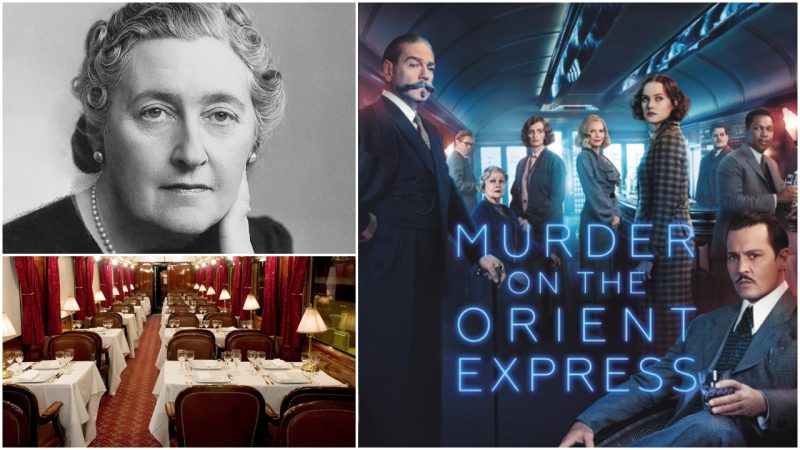Born on September 15th, 1890, Agatha Christie was 14 years into her astoundingly successful career as a detective-story writer when she published Murder on the Orient Express. It hit the shelves in England on January 1, 1934, and appeared in the United States on the last day of February in the same year, priced at $2. The book had first been serialized in America in the very popular Saturday Evening Post, and it quickly became a bestseller.
From early on, the public correctly assumed that the plot, in which the detestable businessman Samuel Ratchett is murdered on a train, was inspired by the Lindbergh kidnapping case of 1932. In the novel, Ratchett, never charged with the crime, is “punished” by those whose lives were most damaged by a child’s kidnapping, but the murderers are uncovered by Christie’s beloved Belgian detective, Hercule Piorot, after the train is halted on the tracks in Croatia by a snowstorm. (In reality, a German named Bruno Hauptmann was arrested, tried, and executed for the kidnapping and murder of the 20-month-old son of Charles and Anne Morrow Lindbergh.)
What is less well known is that Christie, traveling alone, was once stuck on the Orient Express while it was delayed by heavy rain for 24 hours, and heard stories then of snow storms stranding the train for longer and once for six long days. In a letter to her second husband, archaeologist Max Mallowan, she described the delay as well as the cabin layouts, door handles, and light switches, all things that ended up in the book.
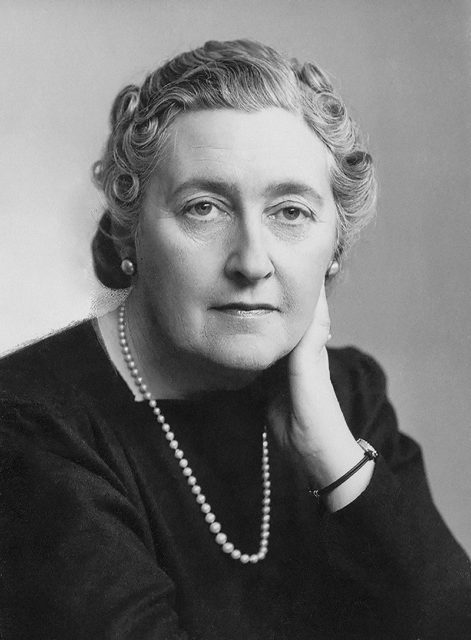
This was not her first time riding the Orient Express, the long-distance passenger train. It had always fascinated her, and she wrote in Agatha Christie: An Autobiography: “All my life I had wanted to go on the Orient Express. When I had traveled to France or Spain or Italy, the Orient Express had often been standing at Calais, and I had longed to climb up into it.”
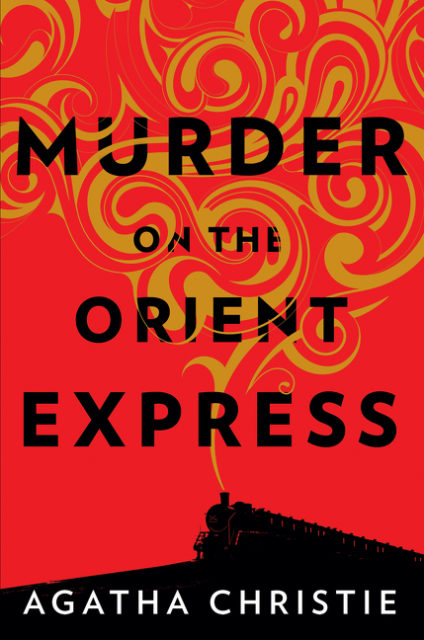
She traveled widely with her first husband, Archie Christie, but that marriage ended when he fell in love with another woman and asked her for a divorce in 1928. Trying to put her life back together, she went on trips across Europe and Asia, and on one of them rode the Orient Express for the first time. She met Mallowan and married him in 1930. They had a long, happy marriage, until she died in 1976.
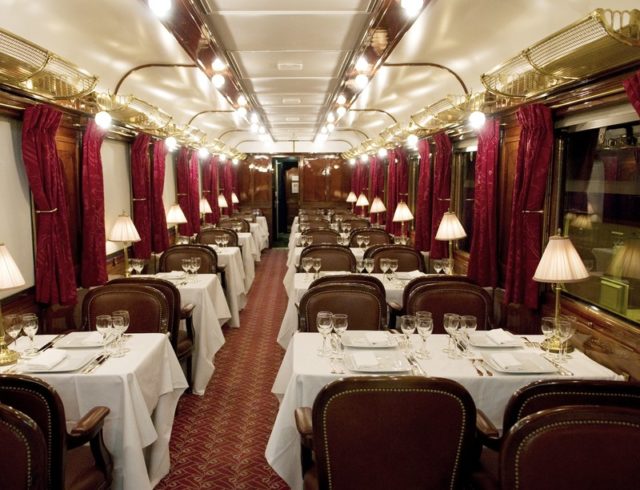
Christie loved accompanying Mallowan on his archaeological digs. She wrote in her autobiography: “All I wanted was to buy myself a table in the bazaar. I could keep my clothes in orange-boxes, I used orange-boxes to sit on, and I kept an orange-box by my bed, but what I had to have, if I was going to do my own work, was a solid table at which I could type-write, and under which I could get my knees.”
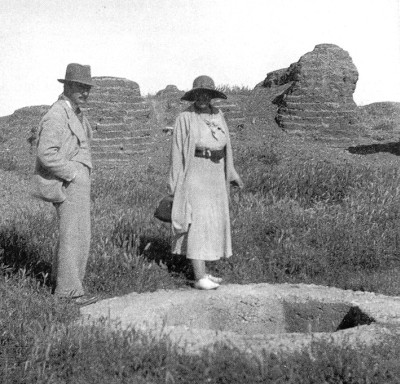
It is believed that she wrote Murder on the Orient Express while with her husband on a dig in Iraq. She dedicated it to M.E.L.M., which stands for Max Edgar Lucien Mallowan. The book is considered her greatest achievement, with such favorite lines of dialogue as Poirot’s “The impossible could not have happened, therefore the impossible must be possible in spite of appearances.”
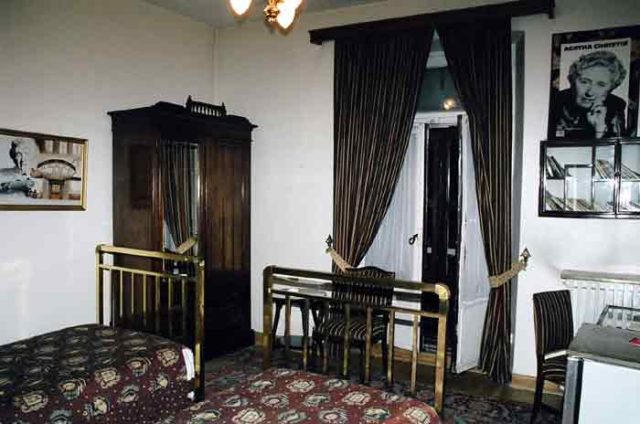
With more than 2 billion books published, Agatha Christie is outsold only by the Bible and Shakespeare. Her works have been adapted into plays, TV, film, radio, and games. The 1974 adaptation of Murder on the Orient Express, starring Albert Finney as Poirot and featuring Lauren Bacall, Sean Connery, Ingrid Bergman, John Gielgud, Vanessa Redgrave, and Wendy Hiller, was nominated for six Academy Awards. Ingrid Bergman won an Oscar for Best Supporting Actress.
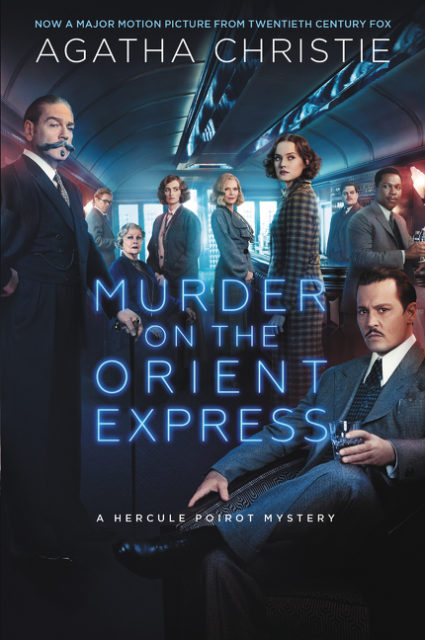
In the U.S., William Morrow is publishing multiple editions of Murder on the Orient Express in October. And on November, 10, 2017, a new film adaptation will be released. Kenneth Branagh will play the great detective Hercule Poirot, with Johnny Depp as Ratchett. Also in the cast: Michelle Pfeiffer, Willem Defoe, Judi Dench, Daisy Ridley, Derek Jacobi, Josh Gad, and Penelope Cruz.
Kenneth Branagh, who is also the director, said in an interview, “I’m addicted to the work of great storytellers, so when you come back to a tale like Agatha Christie’s you’ve got a tremendous piece of entertainment, but you’ve also got something that touches quite deeply on loss and grief and revenge.”
